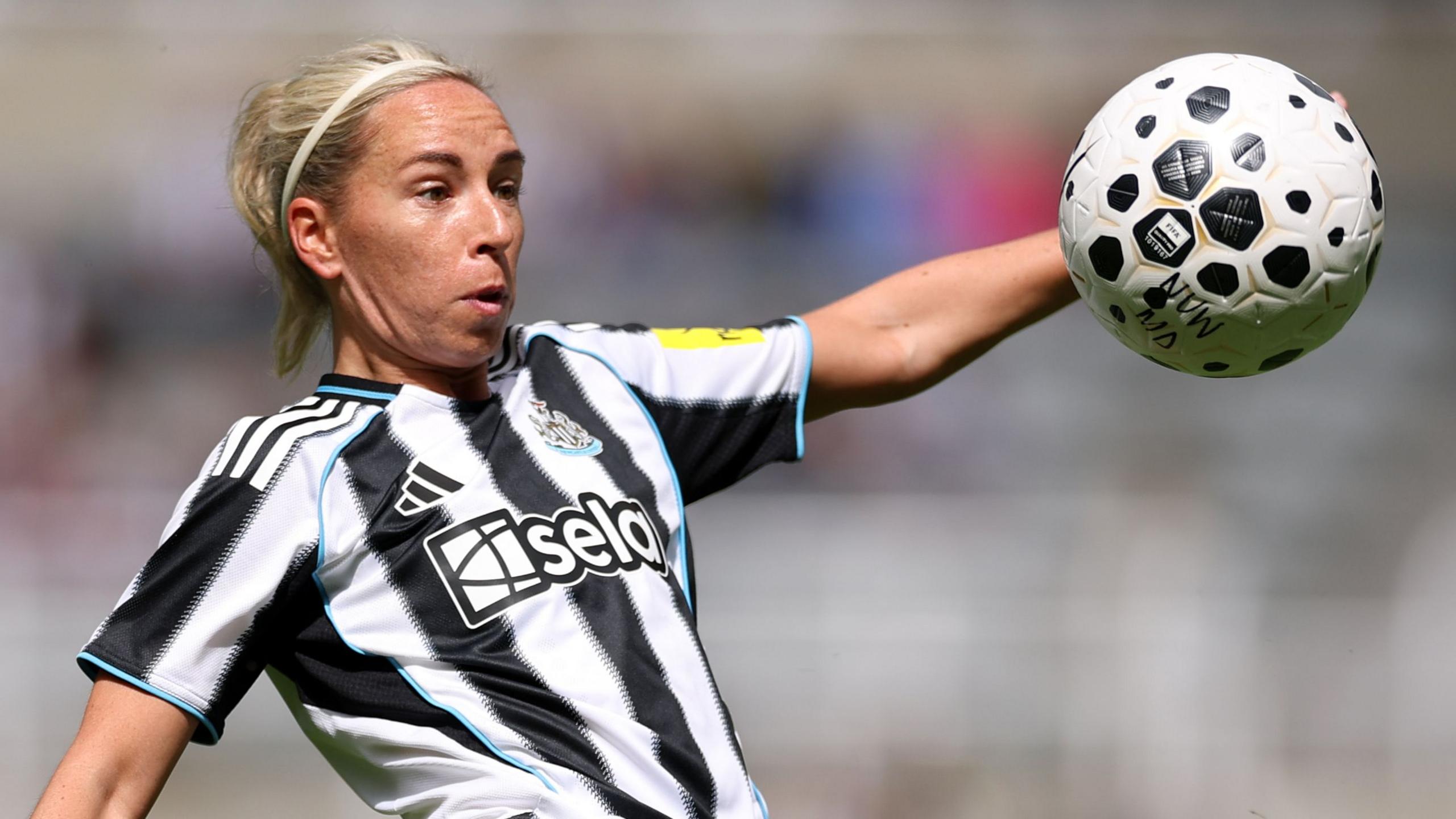 Image source, Getty Images
Image source, Getty Images
Jordan Nobbs is the all-time record appearance maker in the Women's Super League
Emma Smith
BBC Sport journalist
For years, a recurring narrative in the lower tiers of English women's football has been of the part-time player having to balance work with their love of the game.
Common are tales of players finishing a nine-to-five job, rushing straight to training for two hours then home to sleep, with no time to eat properly or for a social life.
An over-romanticised symbol of the poor investment that plagued women's football for years, it is thankfully no more in the Women's Super League 2.
For the first time, in the 2025-26 campaign which starts on Friday, all 12 sides in the second tier will be fully professional.
The growth of the WSL2, renamed this season from the Women's Championship, has allowed clubs to make marquee signings in recent years.
Last season, London City Lionesses brought in Sweden captain Kosovare Asllani. This summer, Newcastle United have signed former Arsenal and Aston Villa midfielder Jordan Nobbs.
Nobbs, who has 71 England caps, is also making a homecoming. Born in Stockton-on-Tees, she started her career in Sunderland but moved away in part because of a lack of professional opportunities in the north east.
"Seeing the really big ambitions in Newcastle, it was a no-brainer," she told BBC Sport of a life in football that started with her first team aged seven.
"We used to play games behind a Morrisons car park. I was in an all-girls team in a boys league. My dad used to play football, we would play head tennis.
"But the game had not developed, now it has and it is huge to see. You want football to develop, and little girls to be able to play up there, join teams and play professionally.
"I've been very lucky to play for top clubs for a long time. But it's a new challenge for me, I saw their ambition. They really wanted me to go, and I really believe in the team."
Nobbs is not the only Lioness to leave her home region to seek opportunities elsewhere. Lucy Bronze and Beth Mead were also born in the north east but moved away to play professionally.
"I've never had so many messages, everyone I know saying 'You're coming home'," she says. "I've lived in London so long, everyone says I'm a southern softie now.
"Moving away is difficult for everyone, but to come back and still be at a high level was perfect."
Nobbs, who is fronting a new FA campaign celebrating grassroots football, says a professional WSL2 is important for giving girls the chances she and her generation found so restricted.
"That's the way we want to go," she said of the full-time second tier. "We want to allow people chance to complete their dream as a footballer. We need that to keep happening. There will never be a stopping point, we will always push to be bigger and better."
'We didn't have access to food'
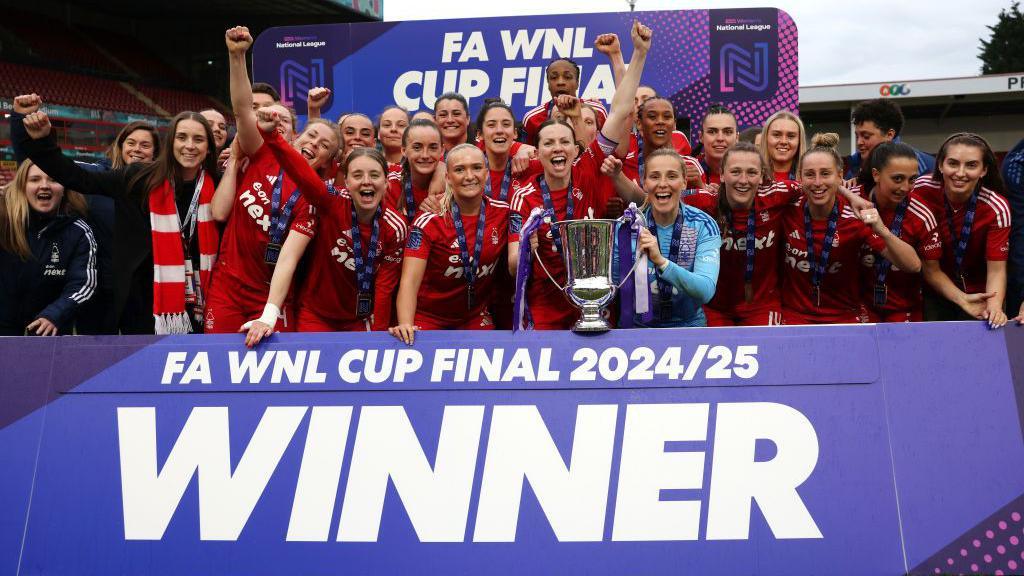 Image source, Getty Images
Image source, Getty Images
Nottingham Forest won the third-tier Women's National League North last season
The WSL2 was confirmed as a fully professional league after newly-promoted Nottingham Forest and Ipswich Town both went full-time over the summer.
Both had been operating on a hybrid model with a majority professional squad alongside some amateurs, but this season every member of every squad will be properly compensated.
"It's a massive part of getting us to where we are now, allowing us to fully focus on the games ahead so we can do our best work," Forest goalkeeper Emily Batty told BBC Sport.
"It's good for the game, for young kids looking and seeing the top tiers are going in the right direction. It's an exciting time to be involved."
Batty only went full-time for Forest last season; before that she was balancing football with an administrative job in the NHS.
"It takes it out of you, particularly towards the end of the season," she said of the work-football balance.
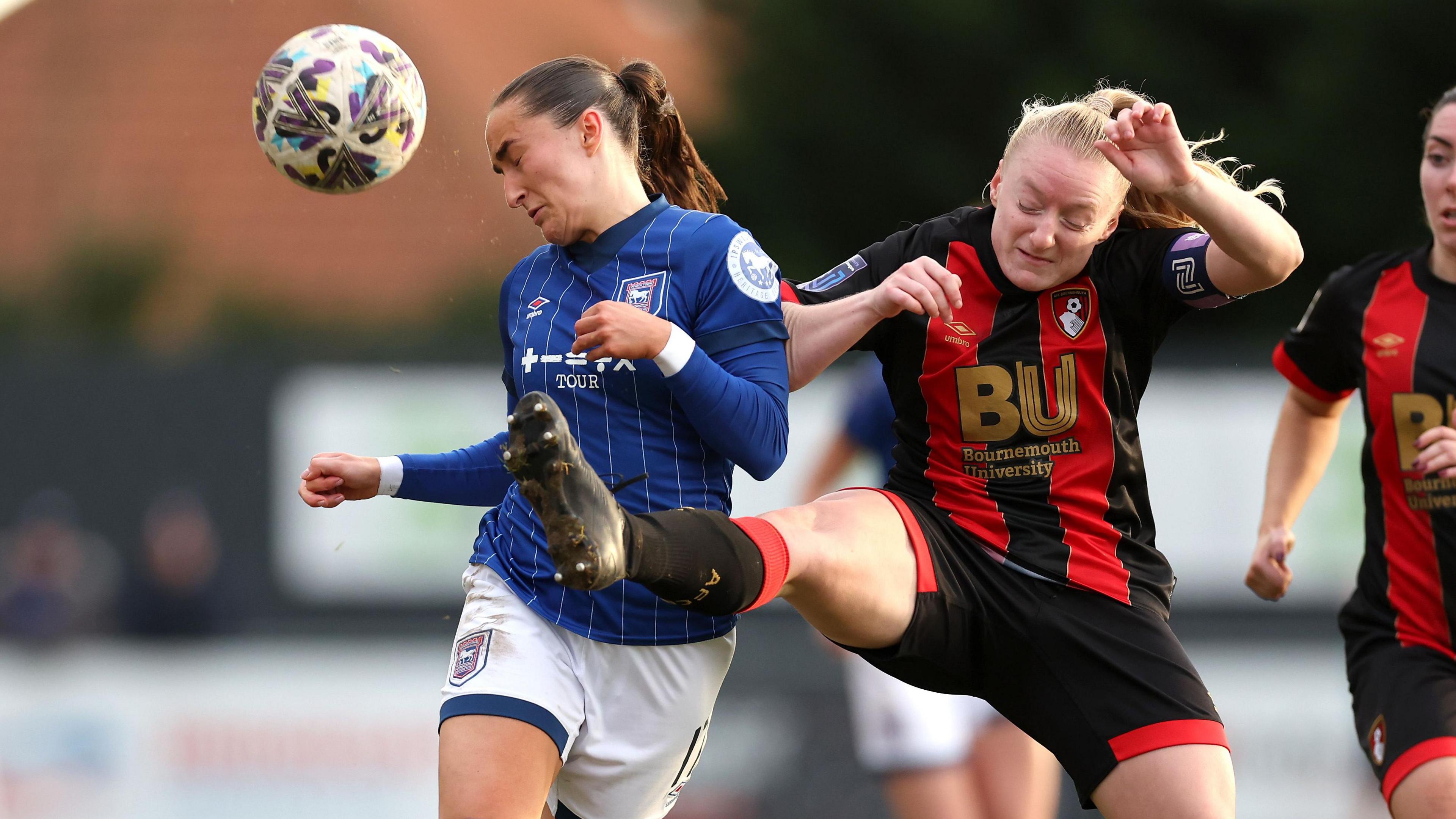 Image source, Getty Images
Image source, Getty Images
Sophie Peskett (left) has spent more than five years at Ipswich Town after coming through the academy
The explosion of interest and investment in English women's football over the last decade has allowed many clubs in the lower divisions to offer financial incentives to some players, but not all.
In 2021, midfielder Sophie Peskett became Ipswich Town's first professional player when she signed a deal aged 18. Four years later, her team-mates are on the same level.
When she joined, Peskett, now Town's record scorer and appearance maker, says they were not even fed by the club, let alone given proper training facilities.
"We had nowhere near as much access as we do now," she said. "Gym access, pitch access, times we are able to be at training ground, it is all much better now. Having everyone full time, we can all be there together a lot more, it gives us time for meetings and analysis.
"For a lot of the team they were working, rushing to training, having a hard session, sleeping then doing it again the next day.
"Now we have our own changing room, we train, do gym and eat. We didn't have access to food initially. The last couple of years, it has improved."
Peskett gives the example of team mate Megan Wearing, who used to rush from her job at a climbing centre to training without any time for a proper meal.
"She was riding her bike from work to training, rushing in then training straight away," Peskett said. "She's had to work very hard to get where she is now."
'I had to go to America when I was 18'
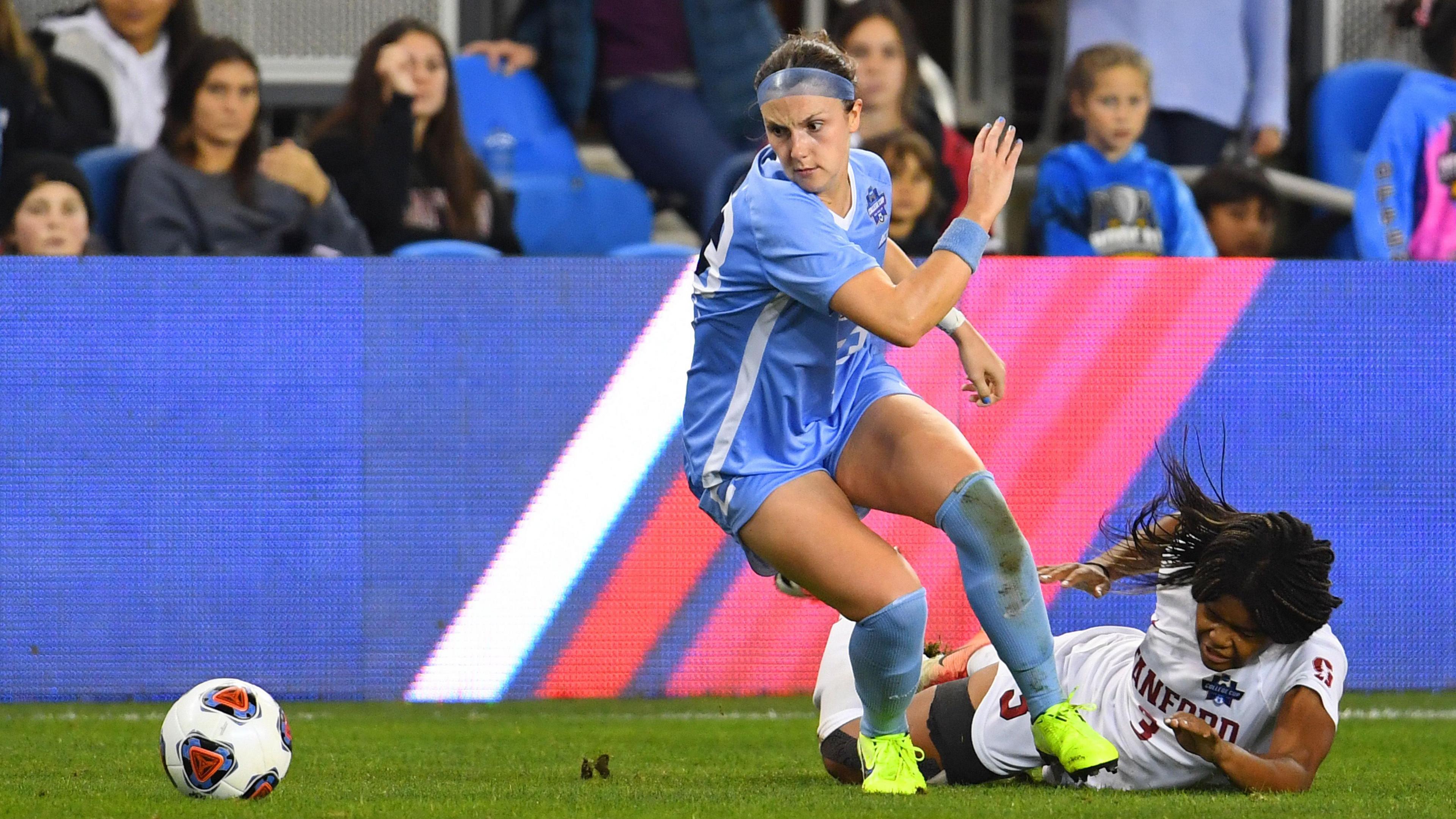 Image source, Getty Images
Image source, Getty Images
England international Lotte Wubben-Moy played for North Carolina Tar Heels between 2017 and 2019
A professional second division will also allow English football to more effectively keep its young prospects on these shores – a long-term issue for the game.
A common path for youngsters has been to seek a college scholarship in the United States, where they can have their university education paid for while they learn their sporting trade.
While it means access to football is dependent on academic achievement, it is far less taxing than trying to balance elite sport with a full-time job or significant monetary worries.
Euro 2025-winning Lionesses Bronze, Lotte Wubben-Moy and Alessia Russo all took scholarships at the University of North Carolina, playing college soccer for the Tar Heels. Both Wubben-Moy and Russo did so after making their WSL debuts.
Bristol City striker Rio Hardy also took that path. Born in Whitehaven, she played for the South Alabama Jaguars before a career which took her to Iceland, Cyprus and Scotland. She moved to Ashton Gate from Rangers this summer.
"Growing up I didn't know you could be a professional footballer as a woman," she told BBC Sport. "I had to go to America when I was 18, as there were no professional opportunities for me.
"Having 12 full time teams, that wasn't the case when I was last here, I'm glad people are putting money behind it [WSL2] and giving it the exposure it deserves."
Sunderland's Brianna Westrup had almost the opposite early career to Hardy, moving from the USA to Newcastle-upon-Tyne to study a masters degree at Northumbria University.
While there she also played for Newcastle under their current manager Becky Langley – but with the club completely amateur at the point, Westrup had to pay to play and for kit while Langley also coached the Northumbria team.
"I know a lot of girls have had to balance work and competitive football, I experienced that at university – if you are not doing well enough academically, you can't play," Westrup said. You miss classes and you have to catch up. It's a balancing act.
"[A full-time WSL2] will help young girls stay here. We have had English players who have gone over to the US for university, it is not the most common to do that [outside of football]. But at that time there was no opportunity in the UK to continue playing at the higher level.
"You don't want the best English players leaving, you want them to stay and thrive. The next step is making sure full time isn't just a blanket statement, but you're actually paid competitive salaries.
"I'm a huge believer that you're only as good as players around you. If you're training in a higher level environment, you will get better."
.png)
 German (DE)
German (DE)  English (US)
English (US)  Spanish (ES)
Spanish (ES)  French (FR)
French (FR)  Hindi (IN)
Hindi (IN)  Italian (IT)
Italian (IT)  Russian (RU)
Russian (RU) 
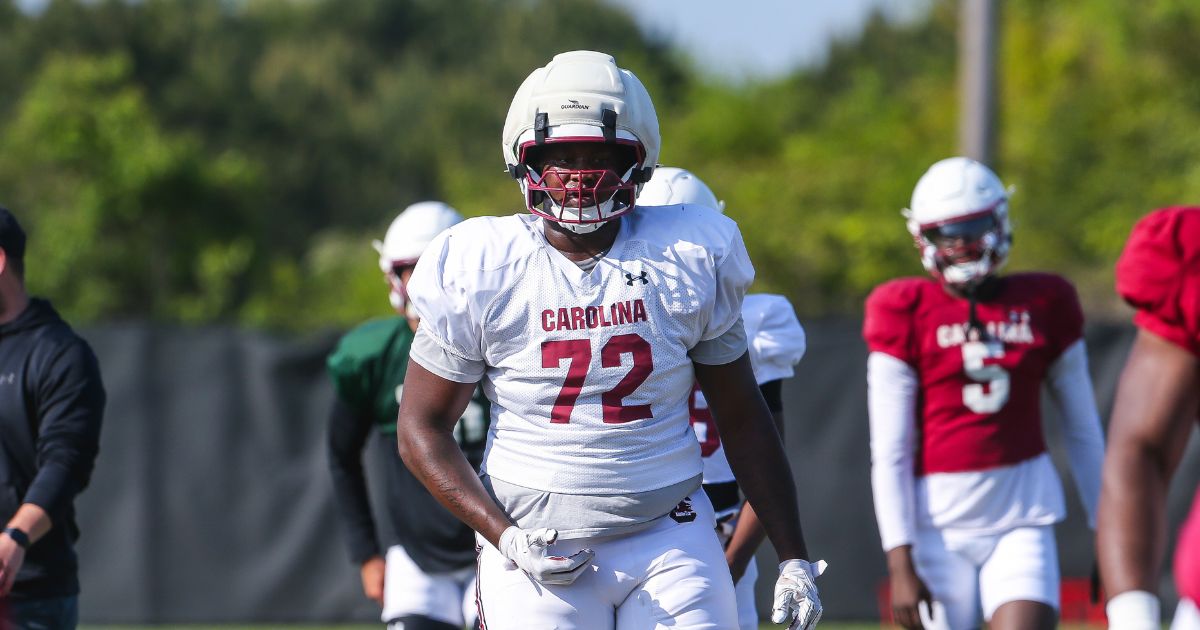
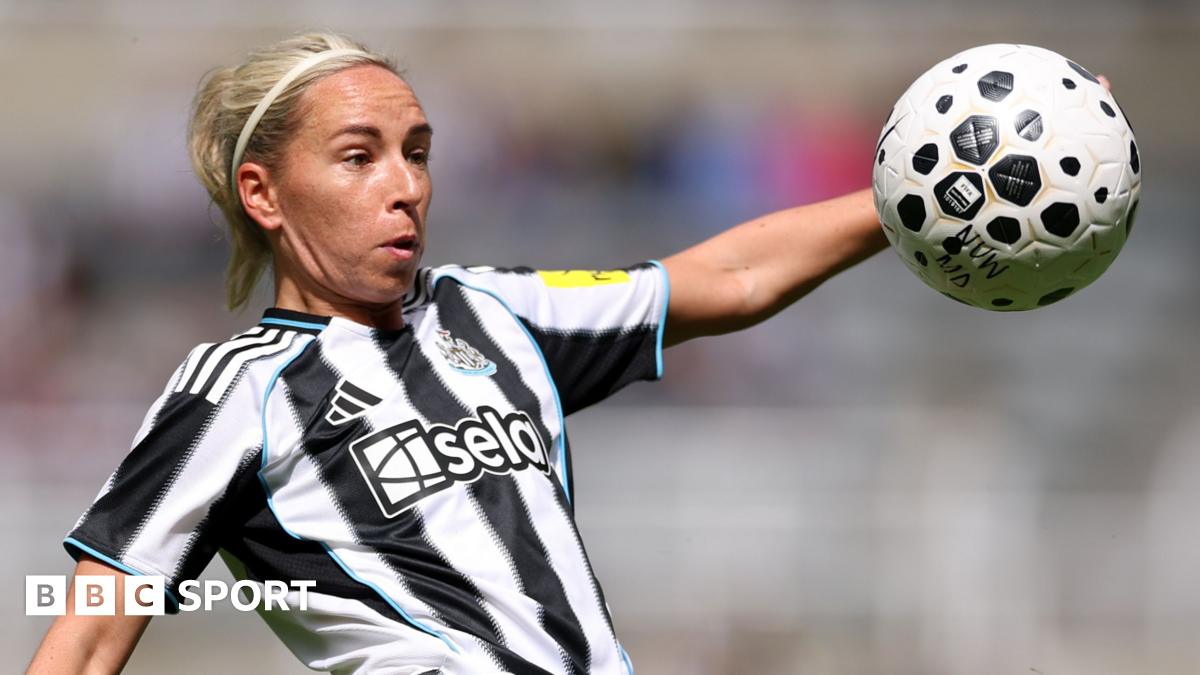
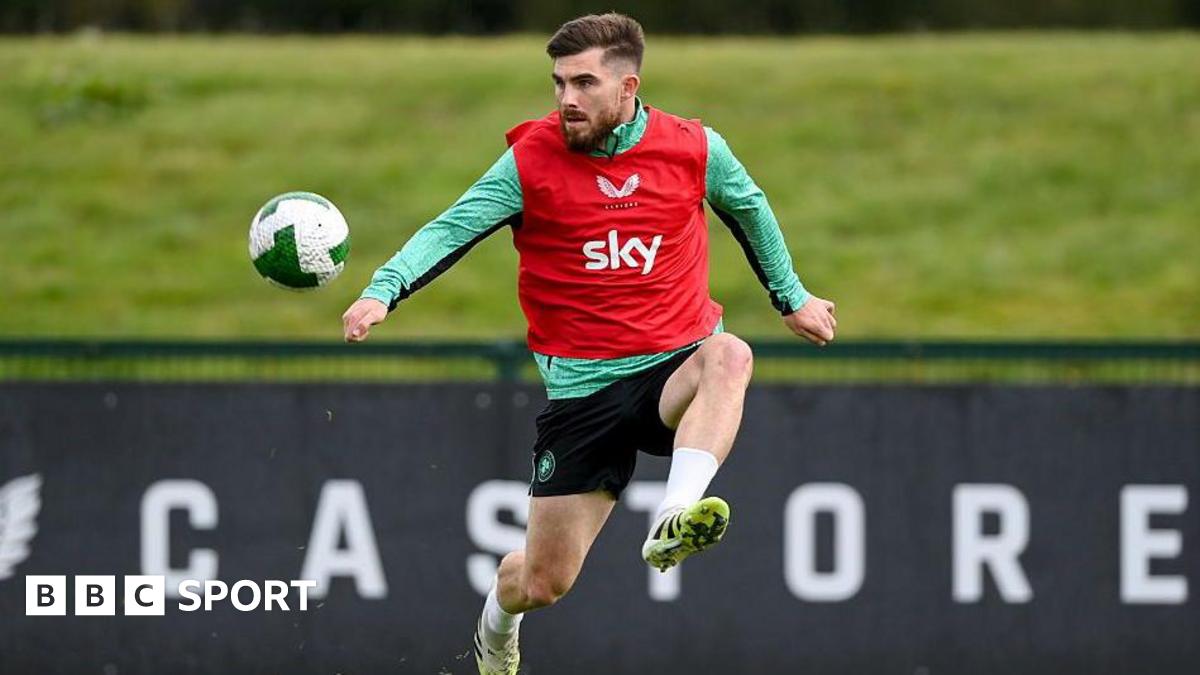
Comments
Get the most out of News by signing in
Sign In Register